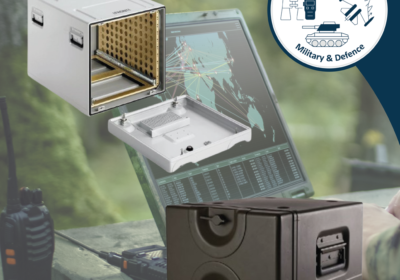Two world leaders in gas detection and monitoring technologies for the offshore industry will present their latest innovations from a shared booth at ONS (Offshore Northern Seas) 2022 in Stavanger, Norway. Taking place on 29 August to 1 September, Teledyne Gas and Flame Detection (Teledyne GFD) and Teledyne FLIR will be helping exhibition visitors to learn more about their solutions for the oil and gas market in hall 10, booth 1063.
One of the largest events of its kind, ONS 2022 will host more than 65,000 visitors from around 100 countries. With over 20,000 square metres of exhibition space across nine halls, there will be plenty to see, especially for any companies seeking reliable, high-quality, proven gas detection and monitoring technologies. Both Teledyne GFD and Teledyne FLIR will showcase a number of proven products that enhance safety and bring even more capabilities to the oil and gas sector.
Among the class-leading products on display from Teledyne GFD will be the GD1 hydrogen sulphide (H2S) laser detector. At the heart of this innovative device is a tuneable laser diode that eliminates environmental effects from sun, rain and fog. The fast and fail-safe laser needs no recalibration and can replace multiple standard detectors to cover the same risk. Well over 800 units have been deployed in the field since 2011.
Also in the spotlight will be the GD10P infrared gas detector with full firmware upgrade, enhancing the
product’s performance in high demand mode SIL2 approved applications. In comparison with other infrared gas detectors, the new firmware adds further to GD10P’s differentiating factors, which include a solid-state infrared source and a 15-year warranty.
Elsewhere on the booth, ONS visitors will find the GD10PE infrared point gas detector, which is ideal when
users need fast, reliable detection of low gas concentrations. With a measuring range of 0-20% LEL, the
GD10PE is five times more sensitive than standard point detectors.
In terms of new innovations, the big announcement from Teledyne GFD at ONS 2022 will be the unveiling of a touch-panel controller for large sites seeking hassle-free gas detection that is simple to install and operate.
A further feature is an improved events datalogger with full IIoT compatibility.
Another exciting innovation launching at the show is Spyglass™, a brand new range of flame detectors
offering integrated high-definition CCTV video that facilitates the clear, rapid imaging of fire and people at unprecedented distances. When connected to a DVR/NVR, the rescue team becomes aware of the exact situation before entering the hazardous area. A range of high-capability models is available offering a selection of different detectors. Visitors should head for the booth to find out more.
Sister company Teledyne FLIR will present a number of complementary products at the exhibition, including the ground-breaking GFx320 OGI (optical gas imaging) camera for visualising fugitive hydrocarbon leaks at natural gas well sites, offshore platforms and liquid natural gas terminals. The safe way to ‘see’ methane leaks, the GFx320’s certifications allow surveyors to work confidently while maintaining safety.
Visitors to the exhibition can also discover the QL320 optical gas imaging system that allows surveyors to
measure the leak rates of methane. This capability eliminates the need for secondary sampling with a toxic vapour analyser or similar tool. In addition, the QL320 does not require close contact with the gas in order to measure emission rates, making it a safer solution for quantifying difficult-to-measure gas leaks.
Another innovation at the show will be the FLIR GF77 uncooled optical gas imaging camera with
interchangeable lens options that detect different gases, including methane and other hydrocarbons.
Furthermore, the GF77 is capable of both gas detection and radiometric temperature measurement for
thermal inspections.
A further product on display will be the GF343 optical gas imaging camera, which lets users see carbon
dioxide leaks (as part of enhanced oil recovery programmes) quickly, easily and from a safe distance.

Any company seeking the latest detection and monitoring technologies to keep oil and gas operations
running safely, efficiently and profitably, should look no further than the innovative solutions available from Teledyne GFD and Teledyne FLIR. ONS visitors are welcome to discuss their specific challenges and
requirements with either company, both of which will have an experienced and knowledgeable team on the booth.
For more information, visit www.teledynegasandflamedetection.com or contact [email protected]








